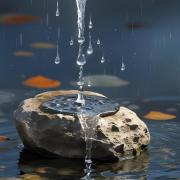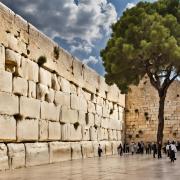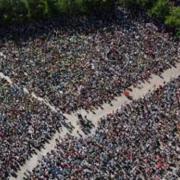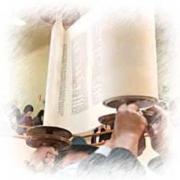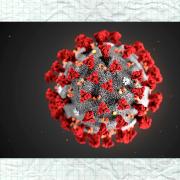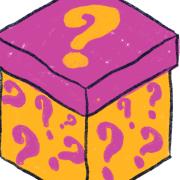Why do we light bonfires on Lag BaOmer?
Imagine it is dark, and hundreds of people are dancing around a huge bonfire, which lights up the excited faces of all the people present around it. But let me ask you why we have had this tradition for hundreds of years?
It says in the Zohar: "Rabbi Shimon said: All my life, I've been begging to reveal this secret. And up until today, my request has been turned down. But today, I received permission. I decree that this day does not turn into the night like any ordinary day. This day belongs to me, as I begin to reveal the secrets..." Rabbi Shimon sat down, engaging in the Divine Torah. Rabbi Aba sat down in front of him and took notes... A fire burned around them, and the sun did not set. He revealed hidden Torah secrets from the Kabbalah until he reached the verse "... For there the L‑rd commanded the blessing, life forever." Rabbi Aba said: "Our teacher had not finished enunciating the word chaim ('life') when his words began to become increasingly imperceptible... Throughout the day, a fire burned in the house, and no one could come near him because he was engulfed by light and fire."
Why was the daylight extended until he finished teaching? The Bnei Yissaschar explains that it was to signify that all the lights of the world were created for the Torah. Our bonfires mirror the sunlight that shone in honor of this special day.
Another explanation: the bonfire that is lit is the fire inside every individual that may have been extinguished and is rekindled once again. This person will carry this light and light others who may not have been present at the bonfire event or felt down in their serving of HaShem, so they can also feel the excitement, see the beauty, and taste the sweetness of Torah and mitzvot.
But there may be another explanation which I would like to present to you today.
Interestingly, if you have ever been to this event, either in Meron or in your neighborhood, you may have noticed that people are holding a small jug of oil in their hands. Some have candles, and during dancing, they throw them into the fire. Why do they do that?
We hold Sefirat HaOmer because Rabbi Akiva's students did not treat each other with respect, did not see eye to eye, could not agree with each other's opinions, and did not accept each other's differences. As a punishment, they started dying, and on the 33rd day, they stopped passing away.
From the first day of Omer to Lag BaOmer, we count from 1 to 33 days, which, Kabalistically, represent different Kavanot. But in simple terms, we are required to work on our middot—the character traits—during this time of the year and, day by day, become better people and better than we used to be.
So here we are, dancing around the fire, and holding our jug of oil in our hands, and suddenly we see that guy, yes, that guy that did bad to us, spoke bad about us, or brought suffering upon us - simply someone we can't stand. So what do we do? Rabbi Akiva's students died because they mistreated each other, and we are not supposed to repeat their mistake, and we need to fix the situation - make the Tikun. But we can't, as we are circling around the fire. The fire throws different shadows that make that person more unbearable and causes much agony to us.
There's a story in the Zohar of the day when Rabbi Shimon came out of the cave. "When the father and son left the cave, they passed a field where they saw Jewish farmers working on the land; they said, 'Imagine people giving up the sacred study of the Torah for worldly matters!'"
When they uttered these words, all the field produce rose in smoke. Then they heard a Heavenly voice saying, "Have you come out to destroy My world? Go back to your cave!" They returned to the cave for another twelve months and left it again only after they heard the same Heavenly voice calling them to leave.
Seeing a Jew carrying two bunches of myrtle, rushing home on Friday afternoon, they asked him what he was going to do with the myrtle.
"It is to adorn my house in honor of the Shabbat," the man replied.
"Would not one bunch of myrtle be sufficient to fill your house with fragrance?" they asked.
The stranger replied, "I am taking two bunches, one for 'Remember the Shabbat day' and the other for 'Keep the Shabbat Day holy.'"
Rabbi Shimon said to his son, "See how precious the mitzvot are to our brothers! Despite all the decrees and persecution of the Romans, the Jews still observed the commandments, especially the Shabbat. Rabbi Shimon and his son felt greatly encouraged."
Many times in the Zohar, Rabbi Shimon Bar Yochai is referred to as butzina kadisha - "The Holy Candle" since he brought to light the secrets of the Torah, and was able to rise to the levels where he was able to have a different outlook on life.
So as we dance around the bonfire, suddenly we realize that the 33 days of Omer that we have been counting have not done their job, and we still have a lot to fix. And at that moment, one thought gives us hope, that we still have another 16 days of Omer left to work on our middot. And that moment before throwing a jug of oil into the bonfire, we say our prayer: "Ribbono Shel Olam, please accept my small jug of oil and make it a Butzina Kadisha - 'the holy candle' that should join the grand fire and make my flame be part of it. Just like Rabbi Shimon was able to change his view of the world, to accept everyone and become the holy candle, so I should be able to do the same, since a bonfire is a collection of flames that dance together in unison and make one flame, a big bonfire - so is the community, that has all sorts of people as each individual flame burning away in one big fire called Life.”
As Shavuot approaches, we have the remaining 16 days to achieve that level of Butzina Kadisha—"The Holy Candle"—and truly become one flame, be together as one community and one nation—Ba Lev Echad and Guf Echad—one in Heart and one in Body, and accept the Torah once again on the night of Shavuot as One Nation under G-d.
Shmuel Katanov





